Finishing The Reaper's Daughter9/16/2014 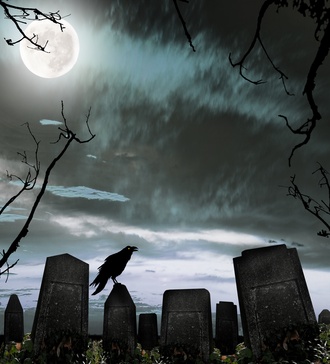 This announcement is long overdue, but I finished the first draft of The Reaper's Daughter at the start of September. I absolutely can't wait to release it, and without totally having confirmed this yet with my publisher, I'm hoping for a mid-January release. My cover is already complete as well, so that reveal will hopefully be coming soon. I absolutely love this book, and yet, after spending eight years on writing Fractured Dream and only one on the rough draft of The Reaper's Daughter, is it strange it felt almost anti-climatic? I almost feel as if I cheated. It's more average sized as far as books go, while Fractured Dream is a bit longer. So perhaps that's it. I poured just as much love into this one, but it felt easier to write somehow. The common saying among authors is that the first book is always the hardest and I wholeheartedly agree. Perhaps it's the motivation I possessed writing the second one, it was so much more intense after finally finishing one book. I'm an actual author now, my inner self screams in delight, and the urge to continue weaving all the stories crowding my head make my fingers go crazy on the keyboard as the "beast-creature ideas," as Ray Bradbury put it, demand to be let out. I also have an urge to return to the world I built in The Dreamer Saga, to continue Story's story (ha ha). It's definitely a different experience soaring through a book in such a short period of time after toiling away for years with people questioning whether you'd ever actually finish the book. Then wondering if anyone would publish it, should I go indie? Traditional? Self-publish? But here I am a year later with a published book and a publisher behind me and a second book almost ready to go, but the beast-creatures in my head haven't had their stories completed yet and so to the keyboard I return, a mad woman with a mission: to tell stories. So here's to getting a book blurb for The Reaper's Daughter soon so that I can share with anyone who likes my writing or is intrigued by the title of this book and what it's about. Stay Tuned for more details.
0 Comments
Ooooh, pretty: book cover eye candy3/4/2014 Today, I read an article featuring some of the most disturbing, horrific and hilarious book covers (and titles) to ever have troubled the reading people, which you can read at Bored Panda. So while the old adage says, "you can't judge a book by its cover," I would suggest not turning your readership off all together. On the flip side, I am really into covers recently, and fiction often lends itself to really awesome imagery, especially fantasy and young adult. My obsession comes from the fact that we've recently been working on the cover for my book, Fractured Dream, slated for publication by Booktrope in June. I'm absolutely in love with it and can't wait until I can share it here. But all in good time. The bottom line, however, is covers. So I decided to showcase a few that for me, are visual orgasms of delight. Stay awhile and take a looksy. The first book pictured above is book one in the Eve series bye A.L. Waddington. For transparency sake, I am editing this series, although I did not have a part in the editing of this first book. But my involvement in the series has nothing to do with my love of this cover. Mystical, magic visual love! I am editing the second book pictured above, which is also in the Eve series. And you're in luck, because the cover for Enlightened was just revealed on Monday. Both covers were done by the wonderful Greg Simanson, a cover designer with Booktrope Publishing. If I was tweeting I'd call it #coverlove. The third book pictured is Schasm by Shari Ryan. The author did her own art work and a fantabulous job she did. I didn't edit the above book, which is the first in this series, but I am editing her second book, Frissure Free. I'll post the cover here at some point because it is also beautiful, if not more so than the first. All three have been, or will be, published by Booktrope. I trolled around for some other visual wonders and found these three, much loved for the contrast of colors, as well as concept. Firebug, the first one pictured, was a a cover reveal featured on Tor.com today. I don't even really know what these books are about, but I'm definitely in the mood to find out. But wait, I'm not done. More eye candy to come. The first one, done by Ida Jansson, is just cool. The designer also works for Booktrope, but I nabbed this off her website, where she also does cover design independently. Book two was a random cover found on Goodreads.com. I so rarely see fantasy covers that feature beautifully drawn creatures of magic that I was drawn to it. It appeals to my old school/new school sense of cover art. The third one is also off of Goodreads, and is a contender in their covergasms contest. You can see why.
Although a book can have a great cover and be a dud, it doesn't hurt to stun possible readers by translating your words into vivid works of art. Fantasy or not, covers have power and I'm feeling the magic in these. I just had to post this cool book trailer for Running Secrets by Arleen Williams, which is on sale now. I edited the book so I might be biased, but it's a great read for those who like contemporary women's fiction. It's the first in a series called the Alki Trilogy for all of you familiar with Seattle. Anyway, check out the trailer if interested. First reader1/5/2014 And then the day came when someone actually read the book...
Any writer will understand the excitement and anxiety that goes along with finally letting someone read your work. I recently handed over my entire manuscript to my sister to be my first reader ever. She has listened to me talk about it for years now, so I figured I owed her the first read. Besides, she reads the fantasy-fiction genre, and can be pretty brutal when need-be. From the point where I printed out the MS for the first time last month, topping off at more than 200k words, to the much slimmer version I emailed to her last week, it's been a journey. In my previous post I babbled ignorantly on about how easy I found "killing my darlings," or editing, had been. And it was at first. But when I was still at 190-something thousand words after cutting 20- to 30 pages, I had to take a step back. I'm pretty realistic, and as much as I loved the 40 or so pages still lingering that were keeping me away from my goal of 160k words, I realize that I'm a newbie, a no-name writer, and a book of that length would be daunting coming from an untested author. Despite knowing this, I tried going through the MS first and cutting down sentences, paragraphs and a page here or there in hopes that it would drop my word count down and bring me to a more reasonable length. I mean I want people to read it. But I moaned, I procrastinated, I debated and shook my head. It was too painful. I couldn't do it. But then I did. I clicked command-x and deposited the first 50 or so into another document, saved it, and said adieu—for now. A prequel could always rise from those ashes. Instantly, I felt a sense of freedom, a weight lifted from my spirit and I turned to my book with new eyes and a better sense of length, pace and readability. And I've been happier ever since. But it certainly wasn't easy, I say to my previous naive self. I even got the word count under 150k. I mean it's fantasy, after all, so it's got a little heft. This all brings me to handing it over for the first time to be read. I'm certain my sister wants to ring my neck, because I keep finding reasons to talk to her to find out what she thinks. But it's an amazing feeling to have written a book and have even just one reader, who so far, likes it. 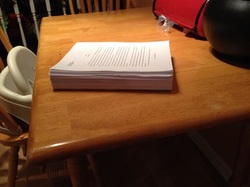 Don’t mind the random fruit loop sitting on the booster seat chair. I have a two-year-old. Enough said. The focus is the manuscript sitting in print form on my kitchen table. Epic proportions it may be, seeing it like that filled me with a sense of accomplishment. No more computer screen. This is real. And then I quietly freaked out inside realizing how much editing still needed to be done before I could get where I’ve been heading all this time. Stephen King has a quote: “Kill your darlings, kill your darlings, even when it breaks your egocentric scribbler’s little heart, kill your darlings.” I’d say in terms of words, I’ve been doing pretty well at cutting since I laid this out on the table. A friend’s words recently reassured me: “None of that matters though, when you can throw your book down on the kitchen table like that and it makes the floor shake, you did good enough.” I did good enough. But now I need to do better. So gone are the first 25 pages, the first words I ever wrote when the story first came alive. Gone are pages in the middle, chopping away at 200k words as if it were someone else’s words going into the trash. Although there have been twinges, passages I delicately caressed before hitting control X– delete would be too harsh so I keep those words in another file–I have found that it hasn’t hurt as much as I thought it would. Hours, days, weeks and years toiled away on the keyboard, and with one stroke those words are gone. I guess, in the end, making it the best story it can be outweighs the pang of loss. And when the day comes I see it in published form, those years of words that will never see the light of day won’t bother me in the least. Because they were stepping stones and bridges to a story that moved beyond them. They served a purpose, and I can be content knowing that. “While writing is like a joyful release, editing is a prison where the bars are my former intentions and the abusive warden my own neuroticism.”
― Tiffany Madison I follow a lot of writers on Twitter, which makes sense since I am a writer myself. And I've noticed at various times when I'm perusing my feed the number of writers who, finished writing a book, bemoan the editing they now have to do. While I'm sure every writer would like to write the last sentence and declare a manuscript complete, I can't relate. Editing is the part where I get to make it pretty -- to change a sentence from drab to fab, and bring color to quickly-written passages. But I do agree with the quote above on writing; it is a release to let the story breathe and the characters clawing their way out of you go free. Having written my own book over a period of years, I'm finding the editing is more than arduous, as full chapters need to be rewritten, and new ideas still come and force me to tweak a character here or a side plot line here. It doesn't help that the book itself has reached epic proportions in length, so that my next job once I've went all the way through is to use my literary scissors and cut. But I do love editing, having only realized this when I became the editor of an online publication. And now my path has led me to Booktrope, where I have begun to work with authors by editing and proofing their stories. Most of the time, it doesn't even feel like work, it feels like I should be editing books and writing books full-time -- oh the dream! Since I'm a realist, I'll be plugging the hell out of my own manuscript and editing books into the wee hours of the night while working the day job that pays. It's hard to rein in inspiration when it hits, so I'll also be fighting off the overwhelming urge to write a YA story that came to me one day recently and has since festooned itself around my soul with images, plot lines and character colors. One book at a time, Katrina, or so I lie to myself... “You grow ravenous. You run fevers. You know exhilarations. You can't sleep at night, because your beast-creature ideas want out and turn you in your bed. It is a grand way to live.” ― Ray Bradbury Today I read a an article at GoodEReader.com by Michael Kozlowski with the headline, Self-Published Authors Are Destroying Literature. I was immediately offended for all self-published authors who've written solid work, I mean what a blanket statement. We all know that the facts are in, and that self-publishing has an obvious role in the future of book publishing, so blaming self-publishing for the downfall of literature seems rather unrealistic.
For one thing, if you're going to blame anything, blame digital publishing and the ebook revolution. But honestly, I didn't realize that literature was being destroyed. From my perspective, it looks like literature is being expanded to encompass more by allowing writers outside the mainstream to have a voice, while also giving the author more control. So many elitists tout the Big Six (not that I wouldn't love to have them notice my work) but I've got to tell you, some of the stuff being published today by the big publishers is yawn-worthy. It's almost as if there is a formula for success in certain genres — ahem, young adult or anything to do with vampires. For awhile there, I didn't want to get into the whole ebook fad. I'm a print loyalist, I've said it before. But then I started reviewing books and it just became the easy way to go about business. Since a lot of self-published books start in the ebook format, I've read a few. There have definitely been some less-than-polished products, although our good writer over at GoodEReader.com seems to think self-published books in general "devalue the work of legitimate published authors." His argument follows the line of thought that because indie authors often price ebooks between $0.99 and $2.99 that it makes readers unwilling to pay for mainstream work that's going for $7.99 to $12.99. I'm sorry, but I don't care if you were published by Penguin or your very own self, I refuse to spend $12.99 on an ebook, except for the one time when I did because I was just so addicted to the series. My excuse is I had a gift card. But in most occasions, I would just rather buy the print edition. You can't lovingly turn the pages of a digital copy or see it age and wear with rereads. It is just not worth it to me no matter who you are to buy an ebook at that price. Unless, like I explained before, I was already addicted and not in my right mind. I mean it was like 1 a.m. and I just had to know what was going to happen next. Here's the thing, I've read self-published stories that I didn't think were up to par with their editing — a grammar mistake here, a weird space there, or an entire chapter that could have been pulled. I've noticed when more editing should have taken place, but I can't discount that many of the stories have been wonderful. And that's not to say that all self-published works even have that problem. Joe Vampire by Steve Luna was initially a self-published work, although he is now published under the Booktrope label. He was seriously a little bit of an inspiration in the vampire genre, where so many authors are trying to ride on the coattails of Twilight. It was refreshing to read a different take in a saturated topic. I've also read truly awful stuff published by mainstream publishers that may have been edited to death, but still have grammatical mistakes. That said, I don't think self-published authors are singlehandedly destroying quality literature, especially beacuse there's plenty of quality coming from that spectrum of publishing. The one area where I can agree with Kozlowski is the tweeting. I follow a lot of authors on Twitter, many of them probably self-published, and my stream is almost a solid mass of writers trying to get people to buy their books. I completely understand that this is one reason why Twitter is helpful, but as a reader, I'm more interested in what they have to say as people. The constant advertisements just blur together, and it's only when I see someone tweet something interesting that I'll really pay attention. Initially, when I first started my book review blog I caught a few titles off the digital bookshelf stream, but now I really have no need. Like most things, beauty is in the eye of the beholder. Many would agree that Ernest Hemingway was an amazing literary author, but I've known people who didn't like his writing at all. E.L. James' 50 Shades of Gray certainly seduced readers in droves, but I wouldn't deign to touch the book. So let's give readers some credit for being able to choose their own literature based on their own personal tastes. If they choose a self-published author over a mainstream author, I'm sure the mainstream author will find plenty of other readers being backed by a big publishing house and the grace of newspaper book review lists. And if it's bad, then it'll tank. Like any book. Just in case anyone thinks I'm writing this because I'm going to hopefully publish my book sometime soon, let me explain. While I respect self-published authors, I in no way want to go that route myself. It just seems like so much work and I want more support for my first book. But it doesn't mean I never would. Publishing today is a whole new game, one that elitists should get on board with soon because the writing is already on the page. I've often heard random people mutter that every book seems to be a series these days. It's true that the hottest sellers do seem to birth sequel after sequel, especially in the young adult genre. Earlier today, I read a post on author Scott D. Southard's blog, titled "Writers, why does everything need to be a series?" Well I may not be a published author quite yet, but I'm going to raise you that question and give you an answer, not that you asked. But here you go.When I first got the idea for my book, let's tentatively call it "The First Dreamer," I had no desire to go beyond the one. This was in 2005 when I was finishing up grad school in Boston by interning for a small, nonprofit magazine.
In my small bedroom in a house shared with three other local students, I got an idea and I started to take notes. Given the fact that I just finished writing the first draft in February this year, it's been a long time coming. The journey has been fraught with self-doubt, inspiration and a cursor that can delete with a homicidal vengeance. Many ideas and concepts have changed from that first seed of a story. Along the way, as characters took on life and the idea blossomed and grew, I realized there was just more to tell. The story could not be summed up in only 300 pages. Sure, I could make it one giant book as J.R.R. Tolkien apparently did, according to Southard, but that's daunting to today's typical reader. My characters just can't be confined to one book. They need two more. I may not have set out to write a trilogy, but I lost control awhile back. It's them. The characters. There are many different styles of writing. Some authors make detailed outlines, and follow an organized, set way of writing. While others, like me, have only a dream of an idea that needs time and patience to become the full-blown story that it is today. In my case, it's through the writing process of time that saw my characters become who they are, and the storyline mature in the way it has. Southard suggests that many authors today decide to write a series for the money. I'm just finding this out, but apparently, series writers were looked down upon at one point. But I can tell you, when I decided that this was going to be a trilogy, money was the farthest thought from my mind. I don't even know if I'll make a dime. It was merely that my characters dictated they would not be done in the breadth of one novel. Although I didn't know what would happen in the first book, their stories became clear to me as I wrote. So I have a pretty good idea how it will end. But you never know. Stories change. I'm the type of person who would eat dinner with her nose in a book as a kid. Spending the entire day reading a page turner is a luxury I can't afford since I had a son, but I used to do it all the time. And I love authors who give me more (sorry if I sound like an AT&T commercial). Give me a trilogy, give me a series of 10. If I like the story, then I can't get enough of it — Babysitters Club, Vampire Diaries, Sookie Stackhouse, Harry Potter, Twilight, Sarah Douglas' Axis Trilogy, Tanya Huff's Wizard of the Grove, Louise Cooper's Time Master Trilogy. I read His Dark Materials by Philip Pullman, which Southard says was a "philosophical mess," and which I can't remember, so it's possible he was right there. But overall, I haven't been disappointed; it's not like the movies where the second one is never as good as the first. In my experience, book sequels rock. I'm not saying they should go on forever. Every story has an expiration date as does life. But if an author can give me a little more, a little longer of a world I cherish, then I'm perfectly content to read on. And I know there are a lot of readers out there who feel the same way. Otherwise, all the books in a series wouldn't be doing so well. Refuting the greatness of the book series, Southard gives us an example of Charles Dickens' A Tale of Two Cities, where in several paragraphs, the main character walks the reader through all the outcomes that happen after the book ends. While he seems to think this is just great, I say what's the fun in that? I want the book. I want to keep living those characters' lives. That's when you know you've found a great story teller, when you're sad the book has ended and you're clamoring to get the second one in the series, and then the third and so on. Next time I write a book, I hope it's just one. Because it is probably much easier. The weight of the world continues to be on mine and my characters' shoulders, so tying up all loose ends in 300 pages would be superb. But that's just not the case with this first labor of creativity and love. So lookout, the Tresslan Chronicles of the First Dreamer will hopefully come to a book store, or Amazon, near you when my characters tell me they're done. And then you can expect two more. Until then, keep reading my friends. 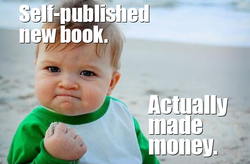 Remember when I had that whole rant about e-books versus print books and how I want to publish traditionally and be in print? Well I still love print. I am indeed, a print loyalist. But that hasn’t stopped me from partaking of both mediums lately. Mostly, I buy print. But authors will often send me e-copies of their books for me to review on Cellar Door Lit Rants & Reviews. So what’s a girl to do? I also have purchased several e-books when a print edition hasn’t been available. Of late, I’m also confused as to which direction I want to take the publishing of my book. I’m currently beginning the editing process of my rough draft. This is a momentous occasion for any author, but especially for one who has been working on said book for seven years. That’s the better half of a decade! But it’s not as if I worked diligently every night. I would get stuck and stop for months at a time in the earlier years, hung up on some detail, waging a war with my own imagination. Only in the last couple of years did I finally figure it out. Funny how even I didn’t know how it was going to all pan out until much later. And when the battle of my ideas was finally won, I got serious about finishing the story and realizing my dream of being an author. In the last year, I also realized this book is more than just one, it’s three, with a spin-off series cooking in my brain. So now I’m finally finished with the first draft, but with plenty of editing ahead of me. And now I’m thinking, should I start looking for agents soon? But what about self-publishing? From what I’ve read it can actually be more lucrative than going with a big publisher since Amazon takes such a small cut. It’s also faster — you mean I could virtually write my book, format it and make a cover and have it out within a matter of weeks? Hells yeah! After seven years I hardly have the patience left to wait how many more months it would take to get an agent, shop it around and then, and only if I got picked up, deal with another round of editing. It sounds arduous and long and I just want to happily tweet about my new book that’s on Amazon today. But that other part of me, the one who says why not try traditional first and if it doesn’t pan out self-publish, sits in the back of my mind chanting its magic spell. She says be patient, what’s one more year after seven? Well, eight or nine actually. I feel informed, I’ve read the literature and I think I understand the pros and cons. But while I still struggle with the decision, I think I will be searching for an agent at the end of all of this and we’ll see where this journey continues to take me. I have nothing but respect for those who have self-published and have had even modest success. My hat goes off to you. It’s a world thick with authors trying to rise to the top and self-publishing has given a voice to those stories that may never have made the light of day. I can attest that many I have read have been great reads. I’m thankful because I know no matter what, my story will live one way or another. And that’s a comfort that didn’t exist seven years ago when the sprig of this story first blossomed from my imagination. AuthorK.M. Randall writes fantasy and paranormal for both a general and young adult audience. Her debut novel, an epic fantasy called Fractured Dream, launched in June 2014, and her second book, The Reaper's Daughter, launched May 2015. Randall also published Fairytale Lost, a prequel to Fractured Dream, as an exclusive on Wattpad. She blogs about dreams, female heroines, and activism and its relevancy to the literary and fictional world. And when in the season, sometimes she just likes to talk about Halloween. She is currently hard at work on the second book in the Dreamer Saga series, Shattered World. Archives
February 2022
Categories
All
Categories
All
|
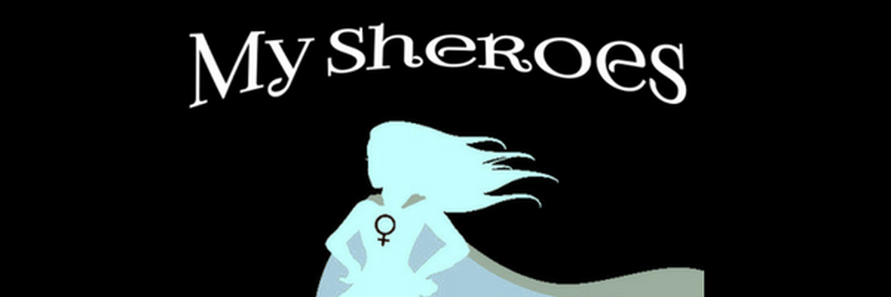
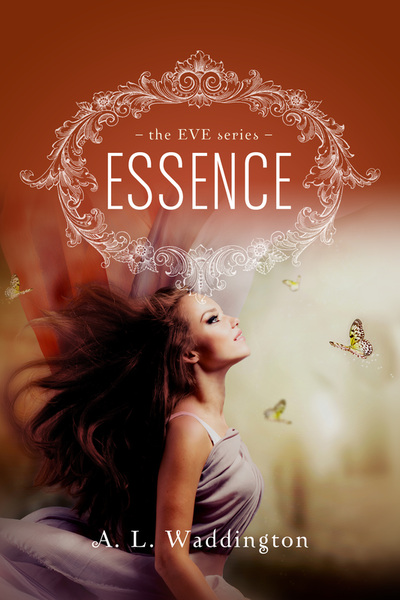
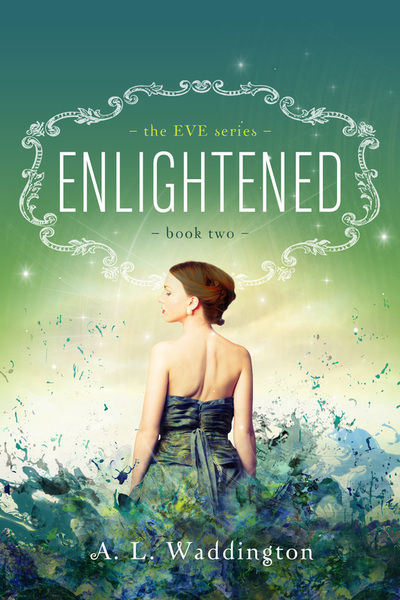
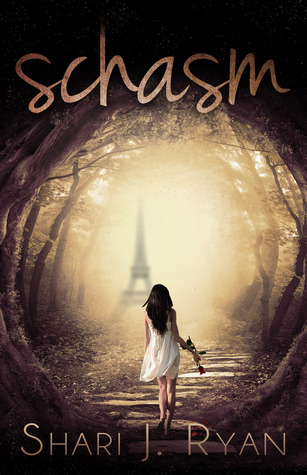
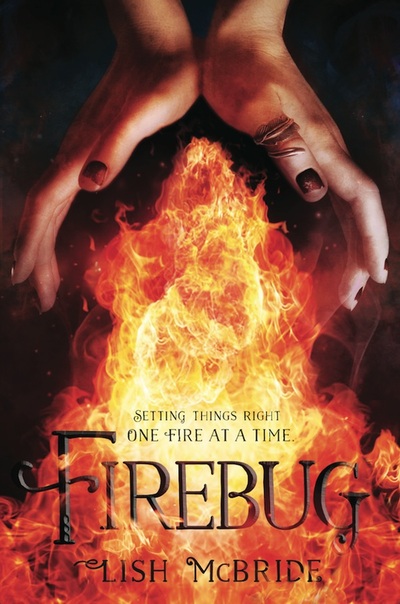
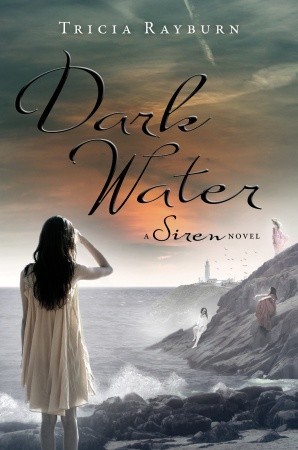
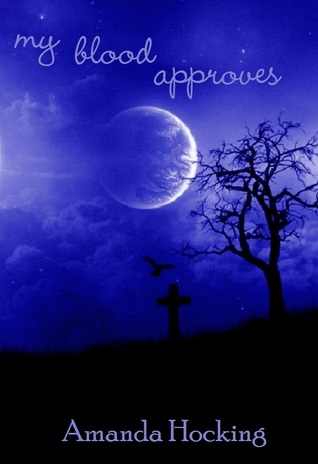
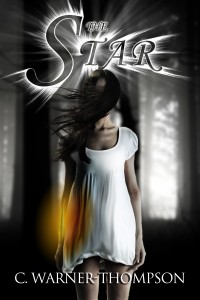
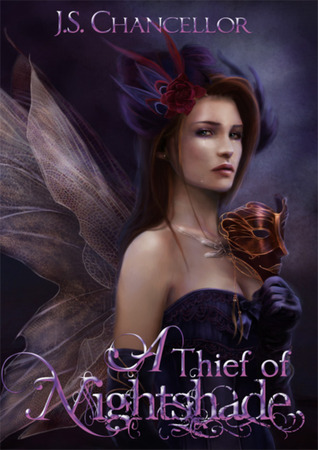
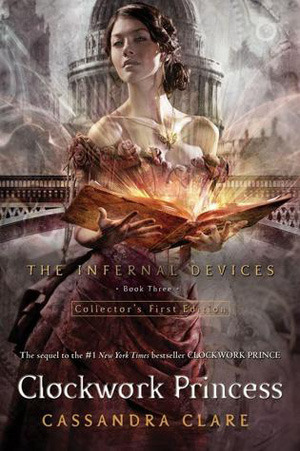


 RSS Feed
RSS Feed
